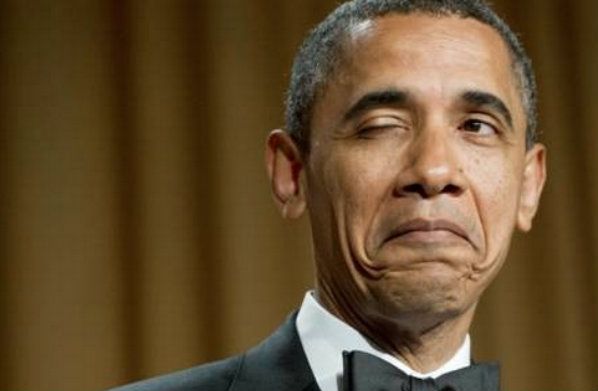We will most likely be voting Tuesday without the administration’s telling us any more than has already been dragged from them with regard to Benghazi. The president keeps saying that he’ll get back to us after there is an investigation.
Here’s why that is bogus: the public doesn’t need to know so much what happened on the ground in Benghazi as what happened in Washington. Who made what decisions? Surely, the president knows what he was doing that night. What orders did he give? Was it the president or (unlikely) Secretary of Defense Leon Panetta who gave the order not to try to aid those under attack at the consulate?
President Obama doesn’t need to hold an investigation to find out what he was doing that night. The story of what happened on the ground in Benghazi is important, but what voters need to know before Tuesday is what happened in the Oval Office. Did POTUS order counterterrorism forces to stand down? If somebody else issued the order, does that mean that the president took a passive role?
The mainstream media has done everything in its power to ignore the Benghazi story. So it’s interesting this morning that Washington Post columnist David Ignatius, who famously has great sources in the Middle East, has a column on “lingering questions” about Behghazi.
These questions linger only if you watch Fox. Otherwise, you probably don't know questions are being raised. To his credit, Ignatius acknowledges the reporting of Fox’s Jennifer Griffin who broke a story last week that CIA officers in Benghazi were ordered to “stand down” and not attempt to rescue those under direct attack. Ignatius also notes Fox’s reports that requests for military support were turned down in Washington.
If I read Ignatius correctly, he is saying that the original order to stand down was rescinded and Tyrone Woods, who died in an attack that night, and his colleagues had authorization when they did, in fact, go to rescue those in the consulate. You never know the provenance of a story in a newspaper, but this strikes me as possibly a CYA leak from an administration source.
But this story isn't a whitewashing of the administration by any means. Ignatius writes:
Here’s my question: Was it wise to depend on a Libyan militia that clearly wasn’t up to the job? Could it have made a difference for those under attack at the consulate if Woods had moved out as soon as he was, in one official’s words, “saddled and ready”?
Second, why didn’t the United States send armed drones or other air assistance to Benghazi immediately? This one is harder to answer. The CIA did dispatch a quick-reaction force that night from Tripoli, with about eight people, but it had trouble at first reaching the compound. One of its members, Glen Doherty, died along with Woods when a mortar hit the roof of the annex about 4 a.m.
What more could have been done? A Joint Special Operations Command team was moved that night to Sigonella air base in Sicily, for quick deployment to Benghazi or any of the other U.S. facilities in danger that night across North Africa. Armed drones could also have been sent. Defense Secretary Leon Panetta summarized last Thursday the administration’s decision to opt for caution: “You don’t deploy forces into harm’s way without knowing what’s going on.”
Looking back, it may indeed have been wise not to bomb targets in Libya that night. Given the uproar in the Arab world, this might have been the equivalent of pouring gasoline on a burning fire. But the anguish of Woods’s father [who has spoken out on Fox News] is understandable: His son’s life might have been saved by a more aggressive response. The Obama administration needs to level with the country about why it made its decisions.
In other words, we need to know what happened in Washington. Ignatius does conclude by suggesting that perhaps decision makers in Washington “needed better intelligence.” So do the American people, who will understand that our officials may not have had every last detail when they made their decisions.
Some have said that we need to ask the old Watergate question: What did the president know and when did he know it? That is not exactly what we need to know. Our question is much easier: What were you doing that night, Mr. President?
Charles Woods, the grieving father of Tyrone Woods, is distressed "that apparently the White House situation room was watching our people die in real time, as this was happening." Interesting thing about Mr. Woods—he hasn’t become a media fixture in the way that the once-ubiquitous Cindy Sheehan, another grieving parent did. IBD compares the media’s interest in the two parents. Hint: Ms. Sheehan was angry at George W. Bush.
Newt Gingrich has said that a senator told him that networks have emails ordering that the counterterrorism forces stand down in Benghazi. Even if this rumor is true, I don’t share Mr. Gingrich’s optimism that they will be released before we vote.


